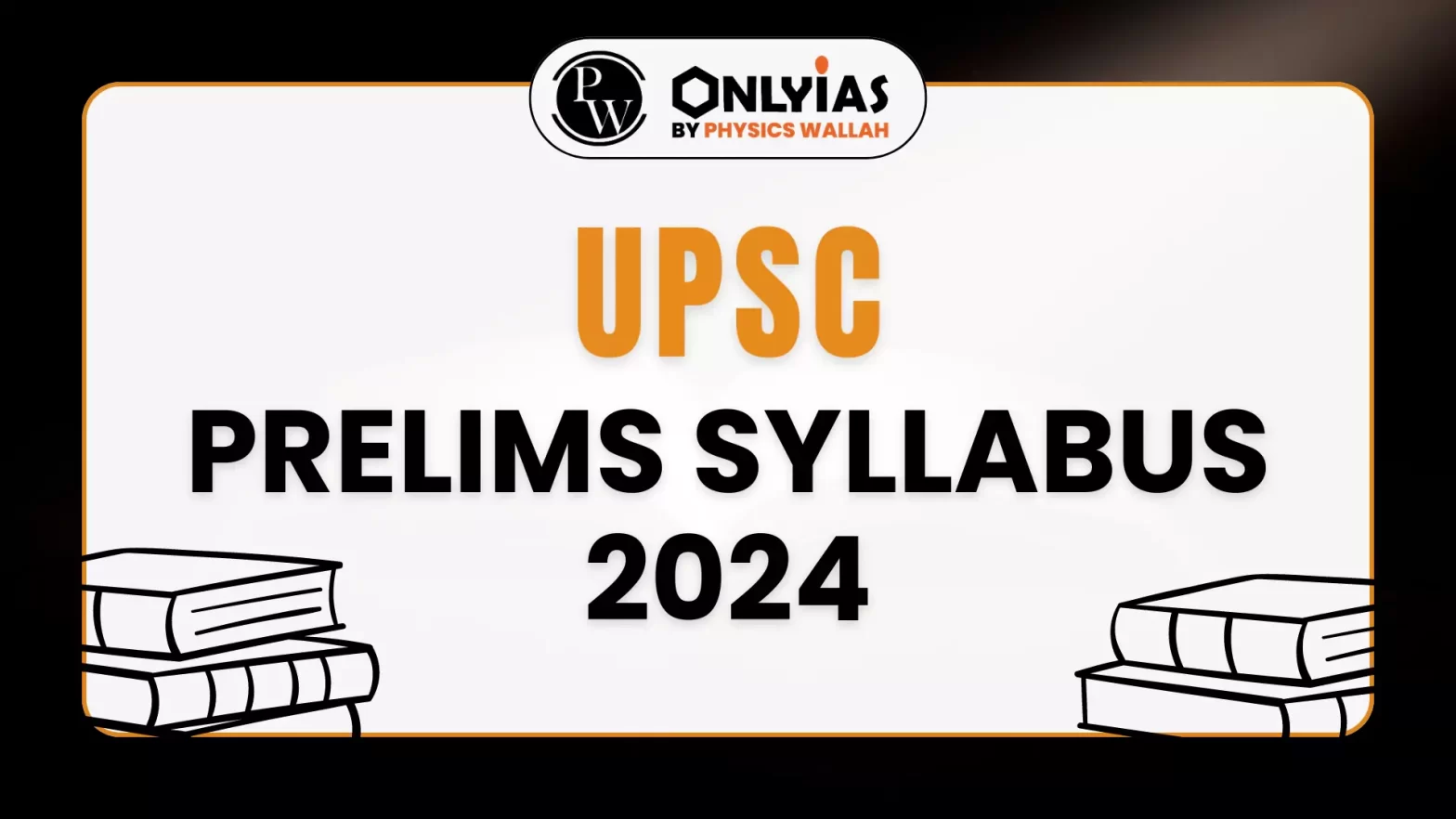Know about UPSC Prelims Syllabus 2024 for GS Paper I and GS Paper II (CSAT) papers. Get detailed insights on General Studies topics like Polity, History, and Environment, along with CSAT areas such as Comprehension and Reasoning.

UPSC prelims syllabus can be divided into two papers: Paper I, which is General Studies (GS), and Paper II, which is CSAT. Candidates will have to prepare well for both papers to clear the prelims examination. For that to happen, covering the complete UPSC Prelims syllabus is imperative.
Candidates are required to study subjects such as Polity, History, Geography, Environment, Current Affairs, etc. as part of GS Paper, and Quants, Reasoning and Reading Comprehension as part of CSAT Paper. By comprehensively preparing the subjects, the candidate has higher chances of excelling in the UPSC Prelims exam.
As mentioned above, the syllabus for UPSC prelims has not been mentioned in detail. The syllabus can be broken down into micro topics by analysing questions asked in the exam. Hence, candidates also have to divide their preparation time into different slots, dedicated to each subject.
The division of the UPSC Prelims syllabus into General Studies and CSAT has been provided below:
|
|---|
|
|---|
The UPSC prelims exam is composed of two mandatory papers, each worth 200 marks. Both papers will be multiple-choice format and last for two hours each. General Studies Paper-II serves as a qualifying paper in the Civil Services (Preliminary) Examination, with a minimum passing mark of 33%. Below is a table outlining the UPSC Prelims Exam Pattern:
| Type | General Studies Paper 1 | GS Paper II- (CSAT) |
| Questions | 100 Objective Type | 80 Objective Type |
| Marks | 200 Marks | 200 Marks |
| Negative Marking | +2 Marks/Question and -0.66 Negative Marks/Question | +2.5 Marks/Question /Question and -0.83 Negative Marks/Question |
| Duration Of Exam | 2 Hours | 2 Hours |
| Qualifying Marks | Cut-Off List | Minimum 33% |
| Languages | English and Hindi | English and Hindi. |
Important Note: It is mandatory for the candidate to appear in both the papers examinations for the purpose of evaluation. The candidate will be disqualified if he/she does not appear in both papers of the preliminary examination.
UPSC prelims syllabus can be completely covered by referring to specific books by reputed authors. Reading from one standard book is generally preferred so as to save time. Following is a list of books that cover UPSC prelims syllabus comprehensively.
| Subject | Books |
| Polity |
|
| History |
|
| Geography |
|
| Environment and Ecology |
|
| International Relation |
|
| Science and Technology |
|
| Economy |
|
| Art and Culture |
|
| CSAT (Complete Syllabus) |
|
Current affairs play an important role in the UPSC preliminary exam. The UPSC mentions that a candidate has to know the current events of national and international importance as part of the syllabus. The nature of current affairs has evolved over time and in recent times, UPSC has transcended boundaries to include topics that were not conventionally asked. The importance of current affairs for UPSC prelims is as follows:
UPSC prelims syllabus cannot be completed without a proper plan. Candidates will have to have two separate approaches for GS and CSAT to overcome the time constraints. Following are some strategies that can be followed by candidates:
Strategy for General Studies |
Strategy for CSAT |
|
|
The UPSC Prelims syllabus has not undergone changes over the years, but the questions asked from the syllabus have evolved. The examination is not just restricted to core topics; subsidiary interlinkages are also very important. However, it does not mean that we should completely stop focusing on core subjects. These core subjects were important and will always remain so. Candidates will just have to read the topics in depth to have a better chance of scoring good marks.
The examination not only tests a candidate’s knowledge; it also tests their ability to comprehend complex information, analyze data, and make reasoned judgments. It also evaluates candidates’ aptitude for problem-solving and their capacity to apply knowledge to real-world scenarios.
| Must Read | |
| NCERT Notes For UPSC | UPSC Daily Current Affairs |
| UPSC Blogs | UPSC Daily Editorials |
| Daily Current Affairs Quiz | Daily Main Answer Writing |
| UPSC Mains Previous Year Papers | UPSC Test Series 2024 |
As part of preparation, candidates will have to study current affairs spanning at least one year. In some cases, they may have to read beyond one year.
No. candidates have to cover newspapers and other important sources for current affairs such as PIB, PRS, Down to Earth etc.
Not necessary. You can identify one core book to prepare for a particular subject. For better understanding you can refer to another book.
If you are a beginner, you may need at least 7-8 months to cover UPSC prelims syllabus. Others can cover the syllabus in about 3-4 months.
Current affairs form an important part of UPSC prelims exams. Analysing previous question papers, it is found that current affairs form 40-50% of questions.
UPSC prelims syllabus is given vaguely. To prepare all the important topics for the exam, it is necessary to further divide topics into sub-topics.
No. Both prelims and mains have to be studied together when you begin your preparation. After completing the first round of syllabus, candidates have to identify topics that are not part of mains and then prepare them separately.
Yes. It is advisable for candidates to prepare their own notes while studying for the UPSC exam. These notes will be helpful during the revision phase.
<div class="new-fform">
</div>